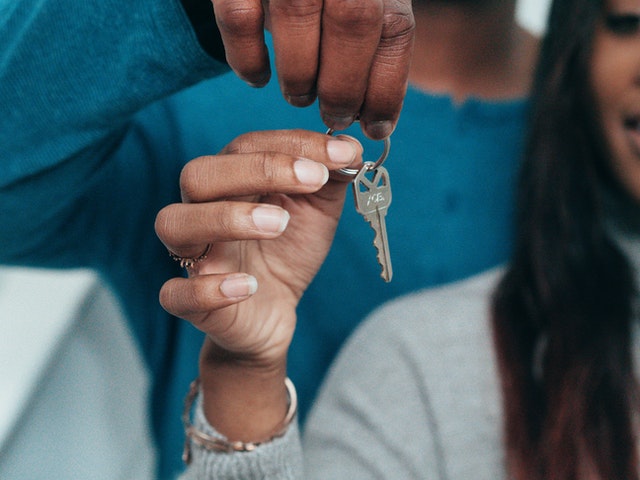Seller’s Guide to Negotiating a Cash Offer On a Home
Reviewed by: Brandon Brown
The process of selling your home can be tricky. There are many moving pieces including finances, a home inspection, and any contingencies your buyer adds to their offer. One way to avoid some of this real estate messiness is to accept a cash offer for your home.
With a cash offer, the buyer agrees to pay you the total sale price in cash without the need for a mortgage. There are several benefits of accepting a cash offer on a house, including a faster closing and no risk of the financing falling through at the last minute.
This handy guide to negotiating a cash offer on a home will help you maximize the value you get in return for your property.
How Does a Cash Offer Work?
A cash offer is when the buyer pays for the entire home price upfront. They don’t take out a mortgage to pay for the home.1 There are a few differences between a cash offer and a financed offer, including:
-
The buyer must demonstrate proof of funds before making an offer
-
An appraisal isn’t required
-
Closing can occur faster
-
Closing costs will be lower
-
Buyers don’t have restrictions on the home they make an offer on
As a seller, you have the ultimate power to decide which offer you accept for your home. By understanding the intricacies of a cash offer vs mortgage for a seller, you will be better equipped to make a confident decision when given multiple offers.
What Does a Strong Cash Offer Include?
Once those offers start pouring in, you need to know what to look for. It can be tempting to only look at the price the potential buyers are offering to pay, but there are many other factors that can make a cash offer stand out, especially when receiving multiple offers. Some key things you want to see in a solid cash offer include:
-
Close to your asking price – The biggest thing most sellers are concerned with is the price. You want an offer that is reasonably close to your asking price. Of course, this assumes that you’ve priced your home fairly for the market and home’s condition. You’ll need to do your homework before listing your home for sale to ensure that the price you ask for is appropriate.
-
No contingencies – A cash sale allows you and the buyer to negotiate the transaction’s conditions. Some cash buyers in a competitive bidding situation may be willing to waive a home inspection contingency in return for a slightly lower offer. If you accept an offer without contingencies, you may make a little less money in the sale—but you’ll have the assurance that the transaction won’t be derailed by an inspection.
-
Closing date that works for you – If you need to sell your home quickly, accepting a cash offer can help you do so. Cash offers skip the financing steps that often delay or cancel a real estate transaction.
-
A legitimate buyer – Before you agree to an offer, the buyer should demonstrate that they have the funds available for the purchase. You can request that they provide you with proof of funds from their bank. An earnest money deposit also shows that the buyer is serious about committing to the sale.

What Are the Benefits of a Cash Offer for the Seller?
There are several benefits to accepting a cash offer. The transaction can occur faster and you don’t have to worry about financing falling through. Negotiations can be made more easily in a cash home sale, which can ultimately maximize property value as well as save time and ensure financial stability from prospective buyers. You can weigh the pluses and minuses of each of these offers to decide on the best one for your needs.
If you’re selling your home in a competitive market, you might be lucky enough to receive several cash offers. But, say you are ready to accept an offer – how fast can you close on a house with cash? The process can vary by situation, but the transaction can be days or sometimes even months quicker than selling to a home buyer with a mortgage loan.
Are There Any Drawbacks to a Cash Offer?
When a buyer makes you a cash offer, they do have a little more control over the transaction. This is because the cash buyer can determine:
-
The price they’re willing to pay, despite the list price
-
If they want you to pay closing costs
-
When they want to close on the home
-
If they want a home inspection
All of these factors can impact if the sale goes through and the amount of money you receive when it does. For instance, if the buyer asks you to pay closing costs as a contingency of the offer, you’ll have to deduct that amount from your total profit. If you don’t agree, they can simply withdraw their offer.
Avoid Cash Offer Pitfalls with FlipSplit
Cash offers can be an excellent choice for a seller if the offer meets the seller’s needs. Selling a house to a cash buyer will allow a home sale to occur quickly without the hassle of waiting for financing. However, unexpected closing costs, home inspection contingencies, and more can disrupt a solid cash transaction.
If you want to sell your home quickly and avoid the potential pitfalls of a cash offer from a traditional buyer, work with FlipSplit. In essence, we buy houses. We’ll make a fair cash offer on your home, add upgrades to increase the market value, and then split the profits with you when we resell the home.
Sources:
- Trulia. How Do Cash Offers Work? https://www.trulia.com/guides/cash-offer-on-house/

Reviewed by: Brandon Brown
As a long-time Asset Manager, Investor, Real Estate Agent, and Broker/Owner of BayBrook Realty in Orange County, Brandon Brown is one of FlipSplit’s lead Real Estate experts. Having worked on over 2,000+ real estate transactions, Brandon brings a depth of knowledge that ensures clients are appropriately treated with honesty and integrity. His insights and advice have been published in numerous blogs beyond FlipSplit, and he keeps a close eye on market trends and statistics, which are updated weekly on his social media pages. Outside work, you can find him participating and serving at church, cycling, mountain biking, surfing around Orange County and beyond, and enjoying time with his wife and two daughters.










